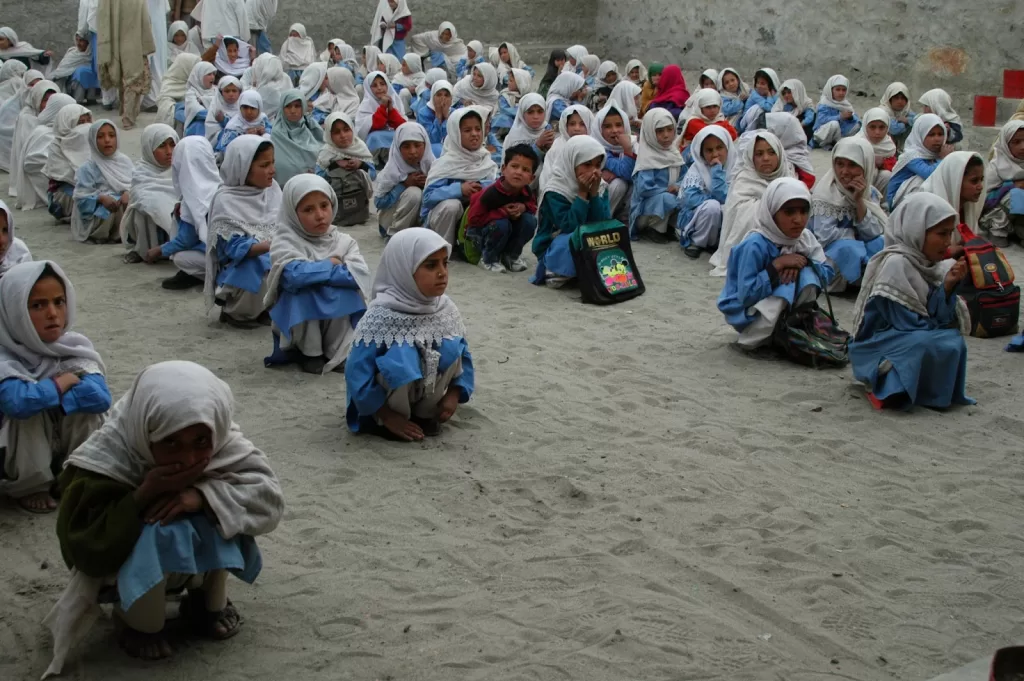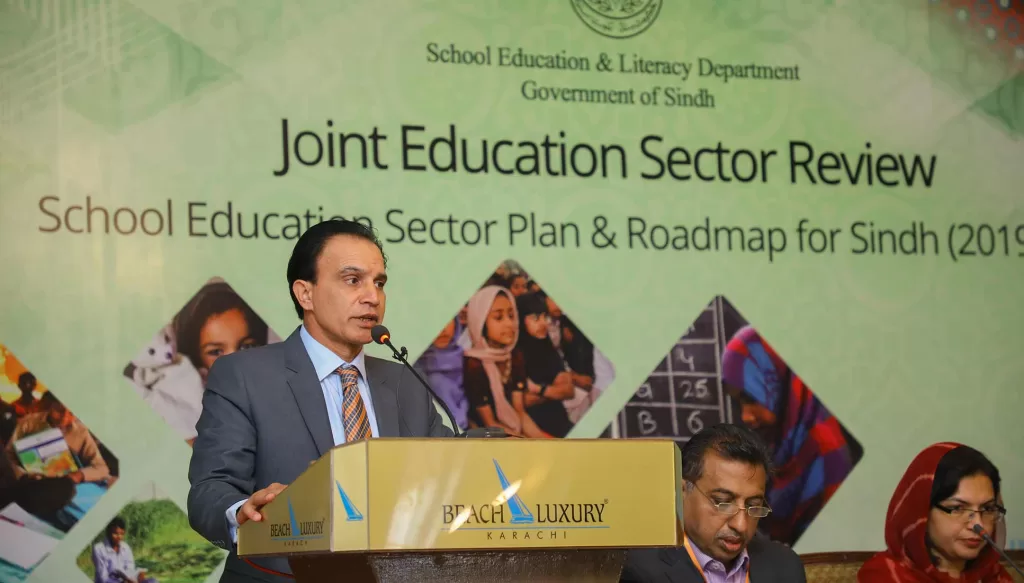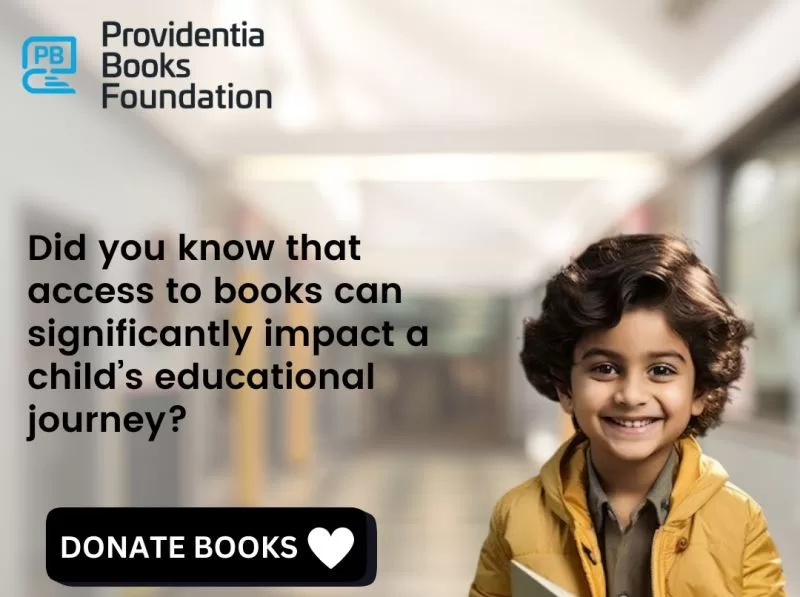Some keys unlock doors, allowing us to delve into the innermost dimensions of our minds. These keys – upbringing, experiences, setbacks, education, and others – unleash a flood of curiosity, imagination, and limitless thinking power, enabling us to contemplate and question the world around us.
Nelson Mandela once said, “Education is the most powerful weapon which you can use to change the world.” His words captured the essence of education as the key to unlocking doors and transforming personalities. For many, education is a ritualistic journey: a child is enrolled in a playgroup, ascends each educational step, and eventually emerges as a matriculate, or a college graduate, or even a PhD holder. But for others, this privilege is like a distant locked door. They are denied the key to education due to scarce resources, inadequate materials, and the harsh realities of their family’s economic conditions, which bar them from accessing the key – their right – to unlock their potential.
For such children from impoverished backgrounds, education represents a lifeline. Their drive to learn stems from a desire to escape the cycle of poverty that has entrapped their families for generations. These children often go to great lengths to educate themselves, attending evening schools after a long day of work, studying under street lights, and sharing tattered textbooks with siblings. Their determination is a testament to their belief in education as a transformative force, a way to secure a better future. But, they are at a significant disadvantage to those who can afford education, are they not? Especially in Pakistan, where historically, education reforms have been proposed and passed but rarely implemented. Under Article 25-A, the Constitution of Pakistan mandates that the state provides free and compulsory quality education to all children aged five to sixteen years. Despite this, the country, which is the fifth most populous in the world, has a literacy rate of just 62.8 percent. This means that 69 million people are illiterate and 26.2 million young, unpolished minds, aged 5 to 16, are deprived of schooling.
Since the inception of Pakistan, several crises date back to 1947 and education is one of them. Pakistan inherited a colonial education system that was insufficient to meet the needs of its diverse and rapidly growing population. The lack of policy implementation makes it harder to promise progress and factors like political instability, military coups, and fluctuating government policies. Education crises in Pakistan stem from a range of factors, including rapid population growth, economic constraints, lack of localized strategies, insufficient infrastructure, geographical challenges, cultural factors, and governmental policies. In a nation where a significant portion of the population is young, the need for education is critical as it provides the skills and knowledge needed to improve life, boost the economy, and help build a better society. For Pakistan, improving education is not just a goal; it is a necessity. An educated population can break the cycle of poverty, stimulate economic development, and build a brighter future for the country. Investing in education is essential for Pakistan to harness the potential of its youth and secure its place in the global community.

Understanding the education crises can lead us to understand why there is a high number of children out of school or vice versa, especially in impoverished areas. The challenges faced by impoverished communities in Pakistan are multifaceted and deeply entrenched. One of the most significant problems lies within the families themselves. The economic pressures are so overwhelming that education be comes a luxury they cannot afford. For many, immediate survival takes precedence over schooling, forcing children to abandon their studies to support their households. Pakistan is 52nd on the poverty list and the underlying economic hardships force many families to prioritize immediate survival over education resulting in children often working to supplement family income. This necessity to support households leads to high dropout rates, with children engaging in labor in fields, factories, or domestic settings instead of pursuing their education. Even those who manage to attend school often find it difficult to concentrate on their studies due to exhaustion from work.
Another significant challenge arises from deep-seated cultural ideologies that restrict modernization and perpetuate gender inequality within the educational sphere. In many conservative communities, the education of girls is not a priority, creating a profound disparity in educational opportunities. Cultural norms often dictate that girls should remain at home to assist with household chores, rather than pursuing their studies. Additionally, early marriages and societal expectations frequently cut short girls’ educational journeys, leading to a substantial gender gap in educational attainment. This entrenched mindset not only limits girls’ academic opportunities but also reinforces the cycle of inequality that stifles their potential for future success.
Beyond cultural norms and family issues, a major reason for the educational shortfall in impoverished communities is the severe lack of resources and inadequate materials. Schools in these areas are often housed in crumbling buildings with minimal resources – with no clean drinking water, poor sanitation, or even basic electricity. In some cases, children must attend classes in the open air or under makeshift shelters that barely shield them from the weather. The outdated curriculum and inadequate teaching methods only add to the problem, failing to inspire and engage students in their education. Unlike private schools’ vibrant, resource-rich environments, these children face a stark reality where their educational experience is spoiled by a lack of extracurricular activities and a shortage of qualified teachers. These conditions make it difficult for students to develop a genuine interest in learning, leaving them at a significant disadvantage compared to their peers in more privileged settings.
Another core issue is the outdated curriculum and teaching methods. The curriculum in many Pakistani schools emphasizes rote memorization, hindering the development of critical thinking and problem-solving skills. Modernizing the curriculum to focus on practical skills and critical thinking is essential to prepare students for the demands of the 21st century. The shortage of qualified teachers in these regions also poses a significant challenge. Many educators are reluctant to work in remote and underserved areas due to poor living conditions, lack of necessities, and limited professional development opportunities. As a result, students are often taught by underqualified teachers or endure frequent teacher absences, impacting the quality of education they receive.
These combined challenges create a complex web of barriers that prevent children in impoverished regions of Pakistan from accessing the quality education they deserve. Addressing these issues requires comprehensive efforts to improve infrastructure, and curriculum, provide financial support, and foster cultural change to ensure every child has the opportunity to learn and succeed.

Understanding the underlying reasons for the education crisis allows us to target the pressure points effectively and relieve tension within the system. Both governmental and private bodies are putting forth efforts to provide education throughout Pakistan. The government is actively addressing the educational challenges faced by children in impoverished areas through several key initiatives, ensuring that every child has the opportunity to unlock their potential and contribute to the nation’s progress.
One of the most significant efforts is the Ehsaas Program, which aims to support economically disadvantaged families. The program offers the Ehsaas Undergraduate Scholarship for higher education, covering tuition fees and other expenses for students from low-income backgrounds. Additionally, the Ehsaas School Stipends provide monthly financial aid to families, helping to reduce dropout rates and encourage school attendance. The Ehsaas Langar Program also alleviates economic pressures by providing food support, indirectly helping children focus on their studies.
Another major initiative is the Prime Minister’s Education Reform Program, launched in 2013. This program focuses on improving school infrastructure by building new classrooms, ensuring clean drinking water, and upgrading sanitation facilities. It also emphasizes teacher training to enhance instructional quality and establish school management committees to involve local communities in school administration, resulting in better learning environments and educational outcomes.
The National Education Policy (NEP) 2021 serves as a strategic framework for educational development, emphasizing curriculum reforms to shift from rote memorization to critical thinking and practical skills. The policy also promotes public-private partnerships to enhance educational resources and infrastructure, aiming to make quality education accessible to marginalized communities.
The Pakistan Education Fund supports various projects to improve educational opportunities. This includes providing scholarships, distributing educational resources like textbooks and computers, and funding school renovations to create safe and effective learning environments.
Lastly, the School Education Sector Plan (SESP) 2019-2023 outlines a comprehensive strategy to improve access and quality of education, with a focus on marginalized groups and strengthening governance in the education sector.
Together, these initiatives reflect a commitment to overcoming educational barriers and ensuring that every child in Pakistan could succeed. Other than the governmental initiative, many foundations, and NGOs work to provide education to impoverished children privately and independently. These organizations are making significant strides in transforming education and uplifting communities, especially to children who are in dire need to good quality education.
By operating pilot projects in model schools and engaging in governmental lobbying, Zindagi Trust works tirelessly to make quality education accessible to all Pakistanis. Founded by Shehzad Roy in 2002, Zindagi Trust is dedicated to reforming education through several initiatives that improves the quality of public schools, educating the children that work to support their families, and advocate for better education policies. Similarly, Baanhn Beli, an NGO in Tharparkar, focuses on promoting basic education and advocating for children’s rights. As a member of the International Union for Conservation of Nature (IUCN), this NGO also emphasizes environmental conservation, reflecting its holistic approach to community development.

One of the biggest problems the schools in impoverished areas face is the quality of educational resources available. Most of the time, there are not enough for the students, and they end up sharing, hindering the process of quality education. Providentia Books Foundation, founded by Amani Sehgal, provides top-quality educational resources to those who need them. By donating books, and collaborating with different foundations, organizations, and schools, it bridges the educational gap for underprivileged students, promoting literacy as a fundamental right. Providentia Books Foundation believes that a love for reading and learning is crucial for a child’s development and that children are more motivated to learn when provided with ample, high-quality resources.
Formal Schools which provide such students education is scarce in Pakistan as unfortunately many have created education as a part of business entities, leeching money out of the rich and providing high-class services. The Citizens Foundation (TCF), established in 1995, operates a network of low-cost formal schools across Pakistan and provides the opposite of what many high-end schools do. By providing quality education to underprivileged children, TCF aims to break the cycle of poverty and promote social and economic development. Managed professionally, TCF has grown to become one of Pakistan’s largest networks of schools, supported by donations and partnerships both locally and internationally.
These organizations are not only addressing immediate educational needs but are also laying the foundation for a brighter, more equitable future in Pakistan. Their collective efforts are transforming lives, proving that dedicated initiatives can make a significant impact on society. It is the kids’ right to study, learn, and grow for their future and do something for their families. Education not only shapes the children’s future but provides the country with a literate force and better conditions. Pakistan though struggling in many fields, many educational programs as mentioned above, run by governmental and private bodies, have allowed children to excel in educational parameters. By implementing grassroots programs, building partnerships, and advocating for policy changes, both governmental and private entities are working tirelessly to ensure that every child in Pakistan has access to quality education.
This unified approach holds the promise of breaking the cycle of poverty, empowering the next generation, and ultimately, paving the way for a more prosperous and just nation. the key to unlocking Pakistan’s potential lies in education, and with continued commitment and collaboration, the right to education would be accessible to all. The children in impoverished areas are stars that need light to shine, and it is through our collective efforts that we can provide them with the illumination they deserve. Ensuring their right to education is not just a moral imperative but a vital step towards a brighter future for Pakistan.





